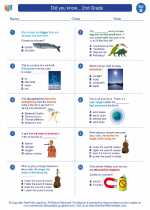What are Hormones?
Hormones are chemical messengers produced by the endocrine glands in the body. These glands include the pituitary gland, thyroid gland, adrenal glands, pancreas, and reproductive glands.
Functions of Hormones
Hormones play a crucial role in regulating various bodily functions, including:
- Metabolism: Hormones such as insulin and glucagon regulate blood sugar levels and metabolism.
- Growth and Development: Growth hormone is responsible for growth in children and adolescents.
- Reproduction: Hormones like estrogen and progesterone regulate the menstrual cycle and pregnancy.
- Stress Response: Adrenaline and cortisol are released in response to stress, preparing the body for the "fight or flight" response.
- Mood and Emotions: Hormones such as serotonin and dopamine play a role in regulating mood and emotions.
Study Guide
To understand hormones better, here are some key points to focus on:
- Hormone Types: Study the different types of hormones (e.g., steroid hormones, peptide hormones) and their functions.
- Endocrine Glands: Learn about the major endocrine glands and the hormones they secrete.
- Regulation: Understand how hormones are regulated in the body and the feedback mechanisms involved.
- Role in Health and Disease: Explore the impact of hormone imbalances on health and common endocrine disorders.
- Feedback Loops: Study the concept of negative and positive feedback loops in hormone regulation.
By mastering these concepts, you'll gain a solid understanding of the fascinating world of hormones and their role in the human body.
.◂Science Worksheets and Study Guides Second Grade. Did you know... 2nd Grade
Study Guide Did you know... 2nd Grade
Did you know... 2nd Grade  Worksheet/Answer key
Worksheet/Answer key Did you know... 2nd Grade
Did you know... 2nd Grade  Worksheet/Answer key
Worksheet/Answer key Did you know... 2nd Grade
Did you know... 2nd Grade  Worksheet/Answer key
Worksheet/Answer key Did you know... 2nd Grade
Did you know... 2nd Grade  Vocabulary/Answer key
Vocabulary/Answer key Did you know... 2nd Grade
Did you know... 2nd Grade 

 Worksheet/Answer key
Worksheet/Answer key
 Worksheet/Answer key
Worksheet/Answer key
 Worksheet/Answer key
Worksheet/Answer key
 Vocabulary/Answer key
Vocabulary/Answer key

The resources above cover the following skills:
Earth Systems Science
Weather and the changing seasons impact the environment and organisms such as humans, plants, and other animals. Students can:
Analyze ways in which severe weather contributes to catastrophic events such as floods and forest fires